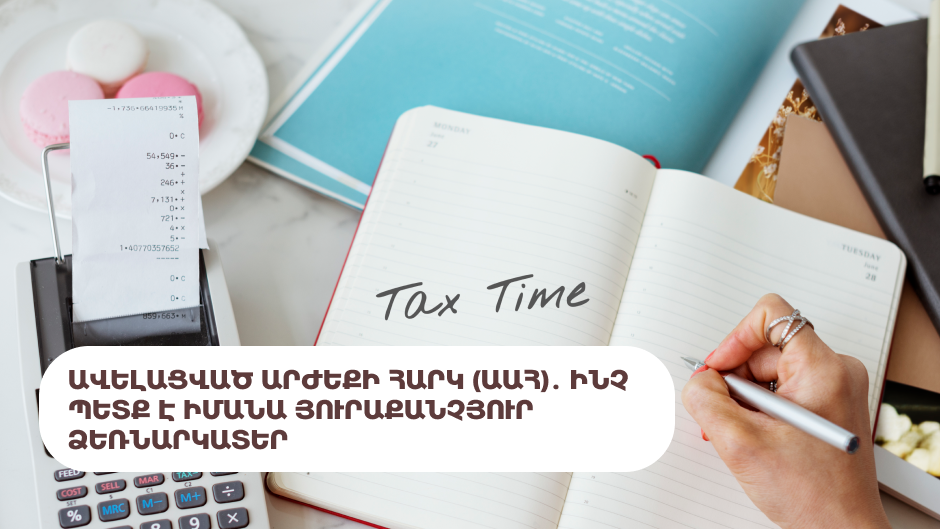
If you are starting a business in Armenia, one of the first important topics you will face is Value Added Tax (VAT). For many entrepreneurs, VAT seems complicated, but in reality, it can be explained in simple terms.
In this blog, we’ll cover:
what VAT is,
who is considered a VAT payer,
how VAT is calculated,
and what every entrepreneur should pay attention to.
What is VAT?
VAT is an indirect tax charged on the sale of goods and services. In simple words, a percentage is added to the price of a product or service, and the final consumer pays it. However, it is the business that is responsible for transferring it to the state budget.
Example: If a product costs 100,000 AMD and the VAT rate is 20%, the buyer pays 120,000 AMD. Out of this, 20,000 AMD must be transferred to the government.
Who is a VAT payer?
Not every entrepreneur is required to pay VAT. In Armenia, there is a legal threshold:
If the company’s annual turnover exceeds 115 million AMD, it must register as a VAT payer.
Smaller businesses may also voluntarily register as VAT payers — for example, when working with larger partners that require VAT invoices.
How is VAT calculated?
The basic formula for VAT is:
VAT payable = VAT collected from sales – VAT paid on purchases
This mechanism is known as input VAT deduction (offsetting). It means that if you paid VAT when purchasing goods or services, you can deduct that amount from the VAT you owe on your sales.
VAT rates
The standard VAT rate in Armenia is 20%.
Some transactions are subject to a 0% VAT rate (zero-rated), for example, the export of goods. In this case, no VAT is charged on the sale, but the business still retains the right to input VAT deduction.
VAT exemptions
Certain activities are exempt from VAT, such as:
residential rent,
some educational and medical services,
specific categories of public transport.
If your business falls into these categories, you are not obliged to pay VAT.
What should entrepreneurs pay attention to?
Documentation. All invoices must be issued correctly.
Deadlines. VAT returns must be submitted on time to avoid penalties.
Accounting support. VAT is a complex tax, so having a professional accountant is highly recommended.
Planning. If your turnover is approaching the VAT threshold (115 million AMD), prepare in advance to avoid unexpected obligations.
VAT is one of the most important taxes in Armenia. Every entrepreneur should know:
when they become a VAT payer,
how VAT is calculated,
and how to optimize tax obligations using the input VAT deduction mechanism.
With proper accounting, VAT is not a burden but a useful tool for financial management.